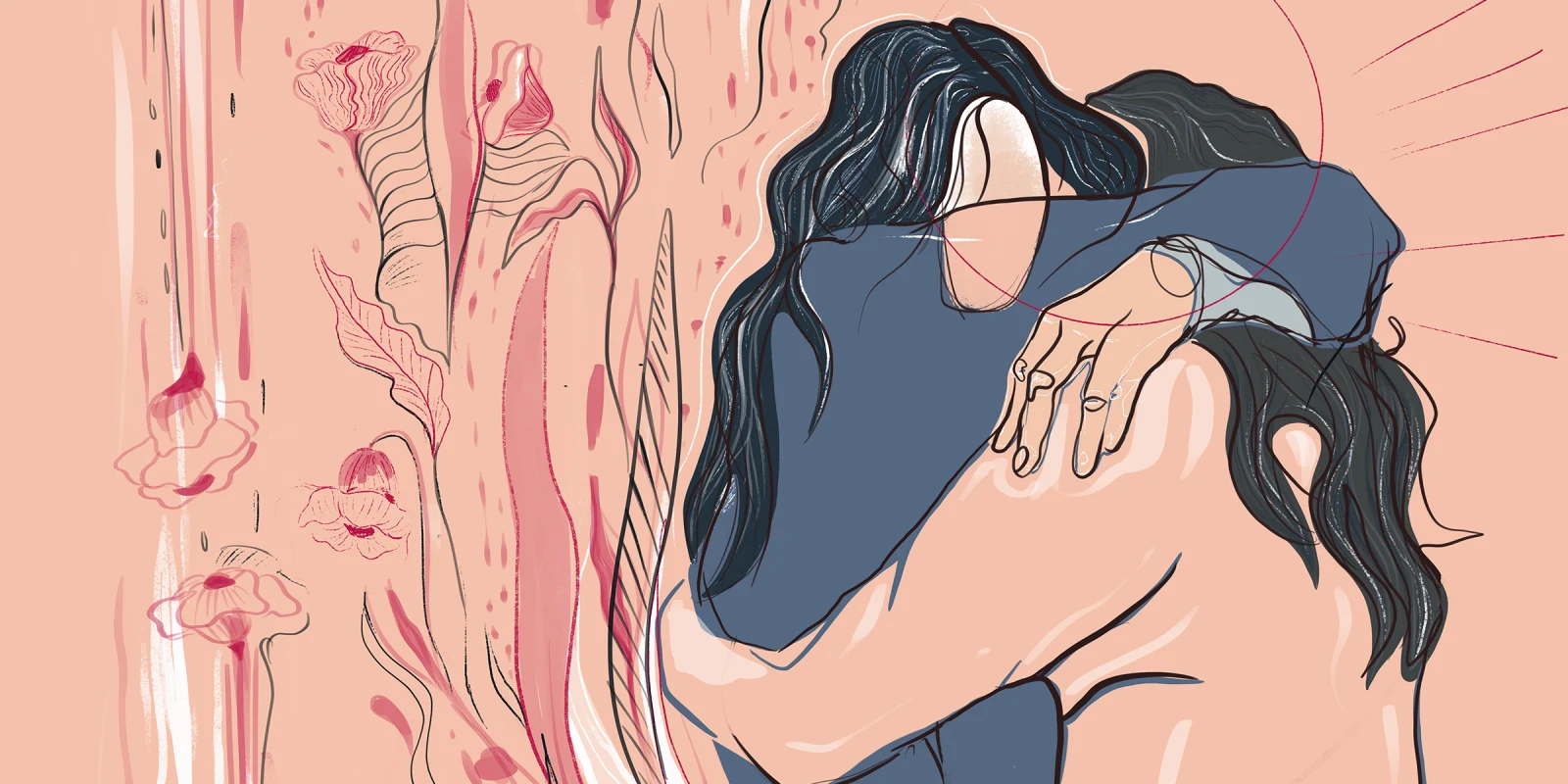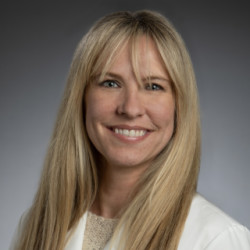I awake to the sound of a distant church bell echoing through the hazy Venetian sky. Is it 8 a.m. already? Rising sharply out of my cousin’s bed, I glance at my phone: I slept through the alarm. The jetlag certainly did not clear the thick fog that had begun to settle a few days before Christmas, when my cousin had called me in the middle of the California night to inform me that her dad had decided to start palliative sedation for his wife. My aunt had been resisting the choking grasp of pancreatic cancer since at best, two years prior, when she began having clinical symptoms. Symptoms, like steatorrhea, that should have alerted the multitude of physicians she visited that the pancreas was involved. And yet, despite 15kg of weight loss, severe and continued abdominal pain, and nausea, she was not diagnosed until nine months after.
On Christmas morning I received the phone call from my uncle that he had found her devoid of signs of life earlier that day. He was tired and worn out from having to inform family and friends, and asked if I could inform my side of the family. I called my dad, who said he would inform my mom, her only sibling. The sisters had been living on two separate continents for over 30 years, but remained very close through the wonders of first the internet, then FaceTime, then Skype. They had weekly hour-long conversations and texted each other constantly. I was thankful that my mother had had the opportunity to spend a few months with her sister over the summer, connecting and making new memories. But I knew my mom would not see it that way.
Two days later, I returned from a 28-hour NICU shift already feeling my thoughts becoming more opaque. I canceled my flight to a vacation in Taipei with my family, and instead booked a flight for the following day to Venezia.
Back to the church bell. It's 8 a.m. on December 29, we are all late waking up. Some of us have the desire to do our hair, some our makeup; most just wash our faces and don black. My parents and sister meet us at the imbarcadero, and we are off to the hospital. The boat ride is solemn, each of us looking out the window, lost in thought. I observe the waves we make in the water. Then they are gone. How curious life is. One minute it’s here. The next it isn’t.
At the hospital, we walk through vast marble hallways, the click-clack of heels ricocheting off the Corinthian columns. Eventually, I enter a small room where there are three caskets, the one in the middle open. I recognize my aunt; yet my breath catches in the depths of my chest as I observe how different she is. It is her, but not her. Devoid of the emotion that gives a face meaning and expression, it appears as if she is wearing a mask. A mask that covers the live version hiding beneath. It feels as if she will open her eyes any second and turn her face toward me and ask what has happened, where she is.
I notice her nails are done with a beautiful lilac polish color. She always had her nails done and never left the house without a spare stash of polishes and nail file in her bag. This makes me smile. Then I observe the dress she is wearing. It is a rich, forest green color that reflects a bit of light with its sheen. It is the dress she wore to my wedding 11 years prior. The memories start to surface and fall down my face with each tear. She was like my second mom, looking after me as I studied in Padova for a year and a half, then traveled to and from Venezia three to four times a year for a long period of time. She taught me how to make the best peperonata, she scolded me when I slept in in the summer, she encouraged me in her way when I was down and did not know what to do. I hold it together for my mom, who is achingly sobbing in front of me, caressing her sister’s cold face. I hug her shaking shoulders as I look at my aunt and wish her the best journey forward.
Later that day is the funeral. Walking behind the procession with my aunt is a slow, morose, and painful process. I link arms with my cousin, and we hold each other close. The actual event is a blur; the main thing I register is how many people are in the church. How the entire community, it seems, is aching at this loss, and how all of these people have come together to support our family. Hundreds of people. Most I do not know, but who nonetheless come up to me and kiss me on both cheeks through tears. People I have not seen in decades show up, family and friends from all over. My heart feels simultaneously empty with sadness and full at this outpouring of love and shared suffering.
Afterward, about 25 of us walk to a restaurant to indulge in some drink and food. We tell stories, discourse about all sorts of topics, and at the end of the day, even share some joy and laughter together. As we walk out of the restaurant, I hear distant church bells again, and I am instantly transported to that morning at the hospital, now years away.
The remaining few days I am able to stay in Venice may be some of the most memorable of my life, as I sit through hours and hours of conversation and many, many glasses of wine over lunches and dinners with countless family members, having discussions about life, existence, meta-ethics, psychology, ontology … connecting in ways I desperately needed and missed.
***
The emotions of the trip to Venice were overwhelming. Back home, as I began to process them, I started to reflect on cultural diversity in the grieving process. In Italy, the norm is that family and friends come together, link arms, laugh and cry, drink and eat, and stay closely connected until the emotions slowly dissipate. Relatives of all degrees, as well as friends and colleagues, pop in on a daily basis, bringing a warm dish or a bottle of wine, or simply company and embraces. It’s an incredibly bonding experience, where those in the community envelop the griever in a protective cocoon of love. There are no rules, no obligatory duties that need to be fulfilled; it is just embedded in the culture, one of closeness and helping others belong.
In the U.S. on the other hand, I find the first reaction for those close to the griever is to “give space.” This likely stems from the days of the founding fathers, who established the country on the grounds of self-governance, independence, and a teleological world-view. Accordingly, my experience has been of others keeping to themselves, both physically and mentally. There is a ‘personal bubble’ around each of us, taught to be respected as early as age 5 (my kindergartener once reported to me that she was reproached for hugging a student who was sad after breaking a dear toy). Many studies have found that “the amount of touch in a society is inextricably linked with a culture’s level of individualism,” (Rosenbaum, 2018) and this is quite pronounced in American culture.
Having long been aware of these stark cultural differences, prior to departing for Italy, I told my closest friends in the U.S. to please stay close to me and check in on me here and there, because I know myself and the deep places I can easily sink into. I feared that my friends, having been raised in a different culture, would surround me with distance as opposed to embraces. For the most part, they came through for me, and I felt immense gratitude.
As a neonatologist, I am similarly pragmatic when discussing grief with parents — whether it is anticipatory grief, grief over the loss of ‘normalcy,’ or grief from the loss of a life. We all approach grief differently, and keeping this awareness at the forefront can help circumvent discord. I always tell parents, “We all grieve in our own ways. The emotions we feel, how we express them, and over what time frame are very personal. And while we may know this subconsciously, we need to remember our spouse/partner is also grieving in their own way. Just because they may not be very communicative or showing overt signs of pain does not mean that the pain is not there.” I have seen many close persons become increasingly disconnected as their grief evolves, and this might not have to be the case if there were a respectful understanding that both are journeying through a difficult process in their own ways.
Similarly, I often recommend that grieving parents not take it personally when others treat them differently than they would like. Though I hoped my friends would all stay close to me after my aunt died, some did stay away — and while it hurt, I knew it was likely a cultural thing. For many grieving parents in the U.S., space may actually be the best response, and they may feel overwhelmed by friends’ insistence on closeness. These cultural, and to some extent personal, differences are extremely important to keep in mind as we navigate through life, fraught with its ups and downs.
I thank my aunt for reminding me that we all approach grief and grievers differently. Grazie, zia.
What have you found most comforting when experiencing grief? Share in the comments.
Dr. Giulia Faison is a neonatologist and budding bioethicist in Southern California. She enjoys yoga, running, and recently has picked up surfing. As a mom of four, exposing her children to the world is a priority. Dr. Faison is a 2023–2024 Doximity Op-Med Fellow.
Image by J_art / Getty Images







